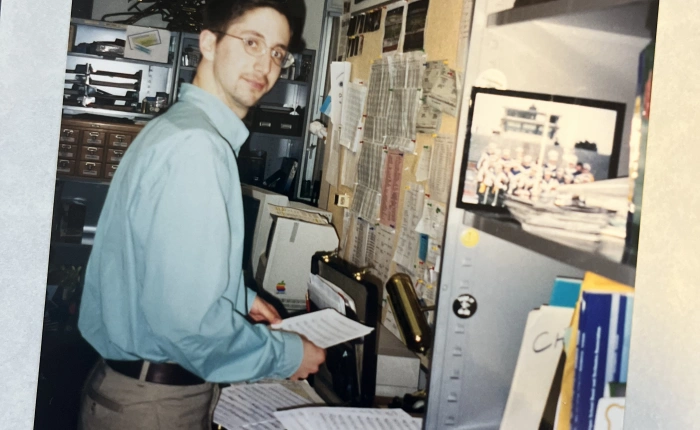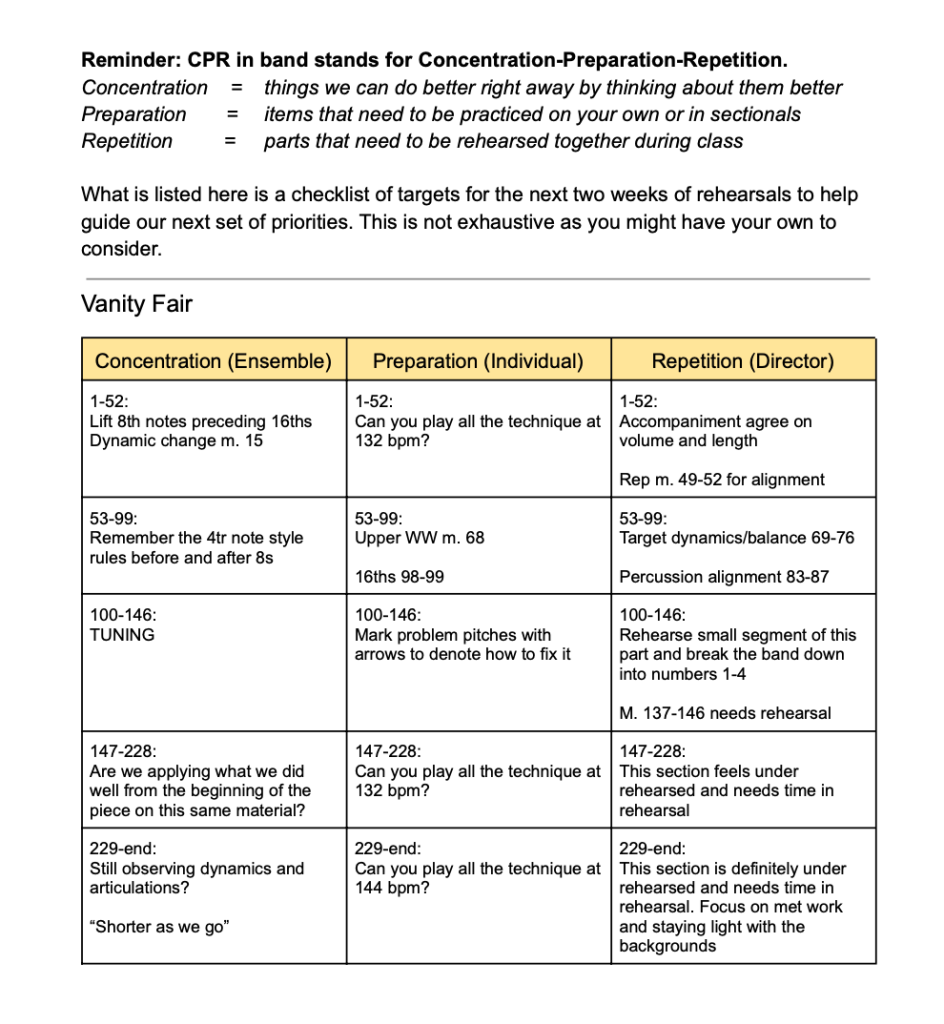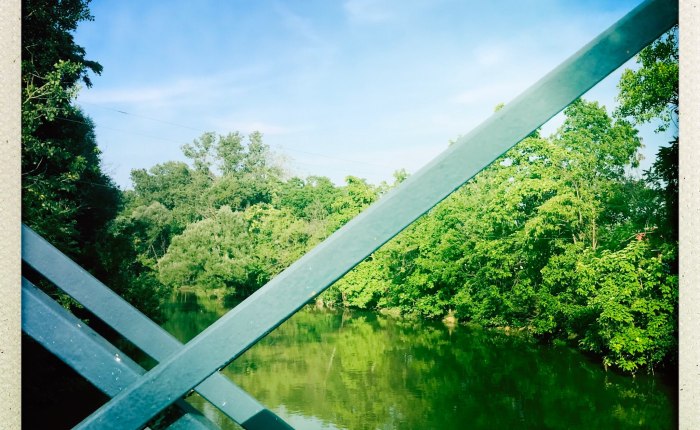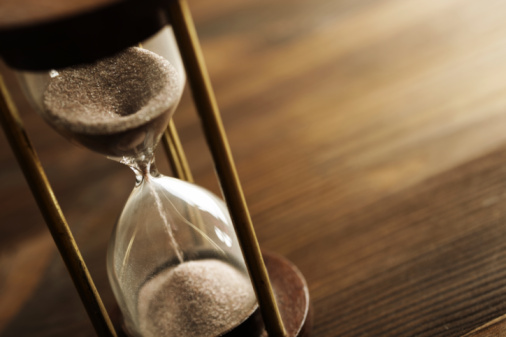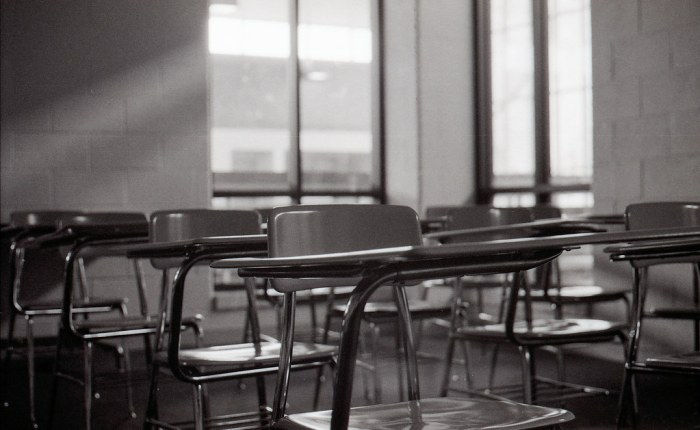I love it when people ask, ‘When did you come out?’ I’m like, ‘Which time, and to whom?’ I came out yesterday to the clerk at the grocery store! We’re all coming out constantly, because there is an element of having to choose how upfront we’re going to be in any conversation.
What follows is a transcript of a lengthy conversation I had with my dear friend Dr. Rob Taylor, Director of Bands at the University of British Columbia. I was proud to be interviewed as part of a chapter he is writing on the experiences of LGBTQIA+ music educators for an upcoming book to be published by GIA (what you read here will not be what appears in the book…I’ll be just one small part of the chapter)
This is as honest and vulnerable of an account as I have ever shared about my experience as a queer person who also happens to love being a band director. Transcription and edit credits to Dr. Taylor.
Happy Pride (for extra credit listen to this song while reading)
I spent so much of the beginning of my career closeted and incredibly compartmentalized in my personal and professional life, and that compartmentalization over the long term created such a schism that I was actually called out by a mentor. He knew that I was gay, and suggested that I had a wall up on the podium and that my artistry was suffering because I was holding back who I was from my students. That set me on a journey to decompartmentalize my life, and to understand that being gay isn’t just part of who I am, but is honestly a defining characteristic of who I am, and a lens through which almost every other part of my life is shaped. So, for me, to compartmentalize — or to have my gay identity separated from my music-making, my conducting, and my artistry — would feel like a profound betrayal of the work I’ve done to become more integrated as a person.
My sources of inspiration have included a peer colleague who was modeling just a little bit ahead of me, in terms of being out as an educator, and an allied mentor who came afterwards and gave me a big kick. A former music booster president was also a source of unwavering support. Once, at an end-of-year BBQ, she stopped the party and gave a toast where she said, “We want to thank you for everything you do, but we also need to thank the unsung hero in the room, your partner Ryan.” She followed up with a very public declaration that if anybody in our community ever had a problem with me being gay, the parents would be there for me. That was a pivotal moment where I realized that the allyship in my life has been a phenomenal support, and people who have been willing to stand up and be strong at times when I could not, have been very important in my journey.
If I am reflecting honestly on my experiences since moving to California, I would say that most hurdles I’ve encountered were of my own creating. There was a need for me to find the courage and strength to believe that I was worthy of showing up fully visible as who I am. I own the hurdles that I built for myself, because I can’t recall a direct moment of difficulty on other terms. I’ve certainly counseled students through encounters with homophobia, and these have been really powerful, teachable moments, but there has been so much professional love, care, and support from the very beginning of my time here. By contrast, when I was teaching in Michigan, I truthfully stuck out like a sore thumb in that small farming community, and presented as somebody who had enough of an affect to raise an eyebrow, but not so much as to turn heads as I walked by. In this community, I felt very loved and supported by the students and parents within my program, but I was called “fag” regularly in the hallways by students who were not mine. I remember very specifically a particular instance of homophobia that caused me to walk away from teaching. I had been working a late evening and was walking out to my car in the horseshoe parking lot that was at the front of the school along the main highway, and a pick-up truck with a couple of teenage guys yelled “Faggot!” as I was getting into my car. At that moment I decided, “I’m done. I’m not doing this anymore. I don’t know what I’m doing, but it’s not this and it’s not here.” I left teaching. It was the accumulation of a lot of little things, but that was the defining moment.
When I left my teaching job, I was pretty sure I was not going back into education. I decided to move to Metro Detroit, because I felt like I needed to be in an urban environment. I waited tables at a restaurant, and felt like I sort of went to “gay finishing school” that year, because it was an opportunity to explore in a large community of gay people that I had never experienced before. I was done being the different one, the special unicorn, or the token gay friend in my group. There was something about assimilating into a larger gay community — and I guess feeling this call to be in a bigger place with people who shared more of my life experiences — that was hugely transformative. In that year, I met somebody who was planning to move to the Bay Area, and that relationship forged very quickly, which is what brought me to California. This series of dominoes fell in a certain order, all based upon listening to an internal call. I am a good soldier and a worker bee. I tend to play it safe and stay in my lane, but there have been these key moments when I definitely swerved and ended up in a new lane that really suited me.
I have encouraged straight teachers, in particular, to not assume that it’s always easier for Queer kids to come out these days. I think there is a belief that it’s such a different time, and that the process is therefore so much easier and somewhat matter-of-fact for kids, but I have found that it often is not. Many parents still have fairly conservative views about the expectations they have for their kids, and getting married and having children with somebody of the opposite gender is certainly prevalent among those expectations. I have experienced a lot of students who have had an easier path to coming out and acceptance, but there are also just as many kids who have really struggled, and have had to find their paths outside of high school. I teach in the generally-liberal California Bay Area, and this is still the case.
In terms of visibility, at the beginning of my career there was a whole cadre of teachers maybe 10-15 years older than me, that everybody knew were Queer, but were under the radar, so I was really missing visibility and role modeling around what it could mean to be unapologetically out as a music educator. What I have been really excited about is that there are more of us who are willing to be very visible in our Queerness as wind band conductors, and that has perhaps made it easier for others. I’ve had younger teachers who have found me through my blog, or at conducting symposia, who often ask for advice about being out. That visibility is a connection that can help people feel more grounded and confident in their own journey. “You seem safe, you seem solid, you seem successful, you seem settled. How can I achieve that?” I think this has been an evolution largely led by social media. There’s more representation in a way that allows younger teachers to feel like they have a tether.
I love it when people ask, “When did you come out?” I’m like, “Which time, and to whom?” I came out yesterday to the clerk at the grocery store! We’re all coming out constantly, because there is an element of having to choose how upfront we’re going to be in any conversation. There is a part of me that likes to disrupt the system by making it clear right away that I’m gay, particularly in professional circles. I actually enjoy that hiccup, because it sometimes catches people off guard. I’m not looking to create discomfort; rather, I choose to do the heavy lifting first and let them decide if they’re comfortable coming into that space with me. This way, I don’t have to bend who I am to make room for somebody else. I feel we need to encourage more Queer teachers to speak their truth more clearly, and to try to let go of any hesitations they might normally have in their classrooms or communities when they’re in professional circles. These gatherings of fellow musician-teachers are a place where you can express yourself in a different way than you do with your students.
Looking back, “passing” was summatively exhausting, and I think I realized at some point that I didn’t want any part of the performative nature of that. It took so much emotional energy to do my best to appear less gay, which I’m sure was ultimately not even that convincing. (This is not self-deprecation. I love my Queerness. I’m like Ira Glass’s gay younger brother, and Siri can’t understand anything I say because I’m a little lisp-y when I talk to my iPhone.) It was such a lift to feel like I had to pass and not come off as “too gay,” which showed up not only in professional circles, but also in my classroom. I’m a buttoned-up, Type A personality, and I’m that way almost everywhere I go; however, I have found in my classes that if I allow myself a little more breathing room to dialogue with my students in a way that is more true to how I speak in other parts of my life, I can be more authentic. I also acknowledge my partner Ryan, and often bring him into the conversation or to events, so that he is present in my teaching world.
Just showing up in truth and in honesty around who I am, I have had several former students who have since come out and shared with me — as I’m sure so many of us have experienced — that they were lost or confused during high school, but knew they would be okay because I seemed okay, and because people liked or respected me. They knew that there was a path forward, a light at the end of the tunnel. Those stories are incredibly powerful and meaningful, and I want all my kids to know that they have a place to be who they are. Something that I’ve gotten more adamant about in my own program is acknowledging the truth of the peer world kids live in — the microaggression, the toxic nature of social dynamics in high school, and what it means to be in the four walls of our rehearsal room, where we can reinvent those social norms and give them something that they can carry into other spaces throughout the day. I’m going to have a kinship with fellow Queer students, but at any given moment, that might only be five to eight percent of the people in the room. There’s a lot of power in normalizing for the rest of my straight-identifying students that they also have a Queer teacher, and when they hear something derogatory about Queer people, they’re saying that about me and any other Queer person they know. Visibility and representation help to normalize what it means to just be around gay people for all of the straight kids in the room, too.
What can we do as Queer, white men to encourage, even insist, on a broader spectrum of people in our field to be at the forefront who have other kinds of intersectionality? This is such a prescient question given everything that’s going on with Black Lives Matter, as well as conversations around social justice, and around the long, multigenerational, sleeping apathy of white people. I think that something that I have always tried to do, but I feel like is much more at the conscious forefront of my thought right now, is to seek out voices that are different than my own to inform a broader world view. I think there have been some really powerful conversations that have happened at a seismic level in the wind band world around diverse and inclusive programming. And I know, for me, that has been a really powerful journey beyond tokenizing. I have taken to sharing with my students the intentionality of the programming that we’re doing.
I have made a conscious effort to make sure that my sphere of educational influence and information includes a broad spectrum of Black, Asian, Latinx, transgender, and other voices. And to have a willingness as a cisgender, Queer, white guy to not center myself in conversations where I can instead be a humble servant to the experiences of other people, and not assume that I can know more than they do about their own lives. When you know in the intersection of your life experiences that you have privilege, you have to remove yourself as much as you can from that position to open your ears, your eyes, and your mind to other voices. The big takeaway is to be really mindful of the voices you listen to, and make sure they are representative of the kind of world view you want to bring to your students.
Jonathan Grantham, Director of Bands, Amador Valley High School, Pleasanton, CA
Queer | White | cisgender male | he/him/his

